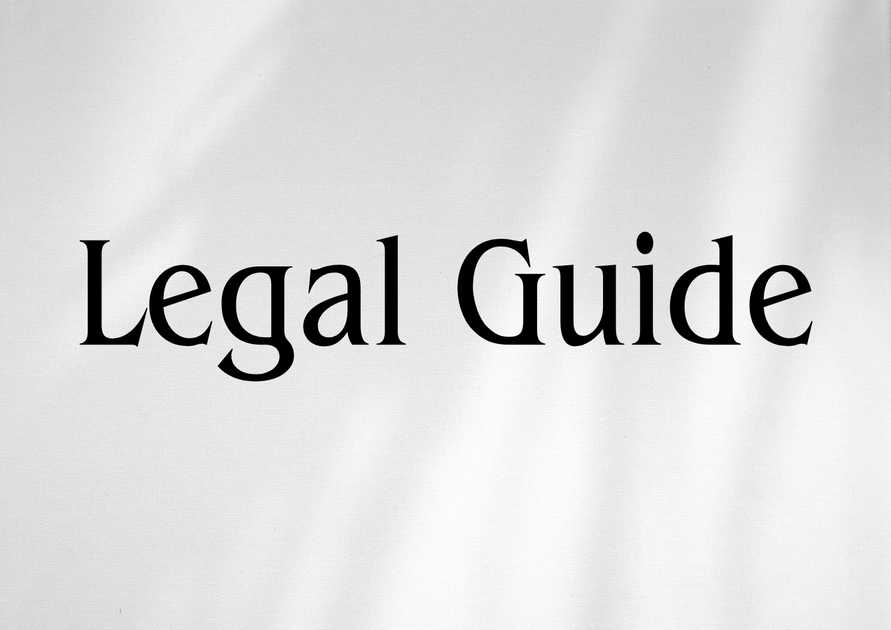Introduction: The Evolving Landscape of Arbitral Awards and Enforcement in the UAE
The United Arab Emirates has emerged as a regional and global leader in international arbitration, with its dynamic business landscape and progressive legislative reforms. As the UAE intensifies efforts to establish itself as an arbitration-friendly jurisdiction, understanding the legal regime governing arbitral awards and their enforcement is essential for businesses, legal practitioners, and executives. The recent introduction of Federal Decree-Law No. 6 of 2018 (Arbitration Law), along with significant amendments in 2023 and 2024, reflects the government’s commitment to aligning UAE law with international best practices. In this analysis, we delve into the key features, procedural requirements, and practical implications of the arbitral awards and enforcement framework in the UAE, emphasizing the latest updates, compliance strategies, and risk considerations for organizations operating locally and across borders.
Navigating the complexities of enforcement in both domestic and international contexts is crucial, especially as cross-border commercial transactions proliferate and the UAE fortifies its global reputation. This article provides consultancy-grade insight, focusing on the needs of decision-makers, HR managers, and legal professionals who must remain proactive in the face of evolving statutory and procedural requirements.
Table of Contents
- Overview of UAE Arbitration Law and Recent Amendments
- Arbitral Awards: Definition and Legal Nature Under UAE Law
- Enforcement of Arbitral Awards: Step-by-Step Procedure
- Enforcement of International Arbitral Awards in the UAE
- Practical Insights and Hypothetical Case Studies
- Risks, Non-compliance, and Compliance Strategies
- Comparative Analysis: Previous Laws vs. UAE 2025 Updates
- Conclusion: Best Practices and Future Perspectives
Overview of UAE Arbitration Law and Recent Amendments
Legal Framework and Policy Direction
Arbitration in the UAE is primarily regulated by Federal Decree-Law No. 6 of 2018 (the “UAE Arbitration Law”), which was tailored to harmonize UAE practice with the UNCITRAL Model Law. Complementary regulations—including Cabinet Decision No. 57 of 2018 on Executive Regulations of Civil Procedure Law and the UAE’s ratification of the New York Convention on the Recognition and Enforcement of Foreign Arbitral Awards (1958)—solidly ground the UAE as a pro-arbitration jurisdiction.
Key recent legal updates affecting arbitral awards and enforcement include:
- Cabinet Decision No. 75 of 2021 (concerning the Executive Regulations for Civil Procedure Law—especially on procedural aspects for enforcement and setting aside of awards).
- Ministerial Circulars issued in 2023 and 2024—clarifying electronic communications, digital signatures in arbitral proceedings, and expedited enforcement procedures.
- UAE Civil Procedure Code (as amended), particularly Articles 212–218 (concerning arbitration’s impact within the national litigation framework).
These ongoing reforms show the UAE’s commitment to:
- Enhancing procedural efficiency and predictability
- Reducing grounds for delaying tactics
- Increasing usability of digital and remote technologies in dispute resolution
Arbitral Awards: Definition and Legal Nature Under UAE Law
What Constitutes an Arbitral Award?
Under UAE law, an arbitral award is the decision rendered by an arbitral tribunal that resolves, in whole or in part, the substance of the dispute submitted by the parties to arbitration. As per Article 41 of the UAE Arbitration Law, awards must be made in writing, signed by the arbitrators, and should contain a statement of reasons, unless otherwise agreed by the parties. Awards may be final (resolving all dispute issues) or partial (addressing only some of the issues).
Legal Effect and Binding Nature
Arbitral awards issued under the UAE Arbitration Law are binding upon the parties with the force of a judgment rendered by judicial courts (Article 52). The enforceability, however, is subject to the formal completion of specific procedures before UAE courts—particularly as to recognition and objections.
Essential Requirements for a Valid Arbitral Award
- The award is in writing and signed by the tribunal (Article 41).
- Contains reasons for the decision (unless waived).
- Identifies the parties, tribunal, seat, date, and arbitration agreement reference.
- No evidence of incapacity, irregularity, or violation of UAE public order.
An invalid award—such as one that violates due process or was issued by an improperly constituted tribunal—may be susceptible to challenge or refusal of enforcement.
Enforcement of Arbitral Awards: Step-by-Step Procedure
Recognition and Enforcement: The Legal Process
The process for enforcing an arbitral award in the UAE is codified in Articles 52–55 of the Arbitration Law and complemented by the UAE Civil Procedure Code (as amended). Below is a consultant’s overview of the key steps and practical tips.
| Step | Action | Relevant Law | Consultancy Tip |
|---|---|---|---|
| 1. Application | File an application for recognition and enforcement with the Court of Appeal at the seat of arbitration | Article 55, Arbitration Law | Ensure submission of all documentary evidence, original/certified award, arbitration agreement |
| 2. Notification | Respondent(s) notified for possible objections within 30 days | Article 55 | Be proactive in addressing potential grounds for objection/allegations of due process violations |
| 3. Decision | Court issues order for enforcement or refusal within 60 days | Article 55 | Monitor deadlines closely; enforcement may proceed in parallel with collection measures |
| 4. Execution | Upon court order, commence execution like a regular court judgment | UAE Civil Procedure Code | Coordinate with execution departments for asset identification and attachment |
Grounds for Refusal or Challenge
While the courts are generally supportive of enforcement, award debtors may raise objections on grounds set in Article 53, including:
- Incapacity of a party or invalidity of the arbitration agreement
- Lack of proper notice or denial of due process
- Irregularities in tribunal composition or procedure not conforming to parties’ agreement/UAE law
- The dispute was not arbitrable or the award violated UAE public order or morality
Consultancy Insight: Detailed compliance checklists and full documentation minimize risk of protracted challenges and facilitate expedited enforcement. Consider integrating a visual process flow diagram illustrating the five-stage enforcement workflow for your internal training or client presentations.
Timeframes and Electronic Filing Provisions
The average enforcement process, absent serious challenge, can be concluded within 60–90 days. According to Ministerial Circulars (2023–2024), electronic filings are now accepted for arbitration-related applications, reducing administrative lead times and enhancing document traceability.
Enforcement of International Arbitral Awards in the UAE
The New York Convention: A Cornerstone of Cross-Border Enforcement
The UAE’s accession to the New York Convention (1958) (by virtue of Federal Decree No. 43 of 2006) ensures that international arbitral awards rendered in other Convention states are recognizable and enforceable in the UAE, subject to narrow exceptions.
Recognition and Enforcement: Practical Steps
- File for enforcement with the competent UAE Court of Appeal alongside original (or certified) award, the arbitration agreement, and—if necessary—an official Arabic translation.
- The court conducts a brief formal review, checking compliance with public policy and due process.
- Unless successful objection is made on recognized Convention grounds (e.g., incapacity, excess of mandate, violation of public order), enforcement is granted as a local judgment.
Expedited Procedures for DIFC and ADGM Awards
The DIFC and ADGM (Dubai and Abu Dhabi financial free zones) operate under independent common law arbitration and enforcement frameworks. Awards issued in these zones are directly enforceable through their own courts and—via judicial cooperation protocols—can be converted into executory instruments before UAE mainland courts. This enhances efficiency for financial institutions and multinationals.
Case Study Suggestion: Visualize a cross-border enforcement scenario where a Dubai-based company, after winning an ICC award seated in London, seeks execution against assets held in Abu Dhabi. A compliance flowchart would illustrate the route through New York Convention application, Arabic translation, objection windows, and asset attachment phases.
Practical Insights and Hypothetical Case Studies
Case Study 1: Domestic Award Enforcement
Scenario: A construction company obtains an arbitral award in its favour following a dispute with a subcontractor. Both parties are UAE-incorporated entities. The company:
- Files the original award and agreement at the local Court of Appeal
- Submits all supplementary evidence to validate due process
- Defeats a limited objection by the subcontractor (who failed to attend a hearing due to its own negligence)
- Receives an enforcement order and proceeds to execution
Key Takeaway: Attention to procedural rigor and documentation minimizes risk. Even if the counterparty attempts to frustrate enforcement, courts are typically robust in upholding awards that are procedurally sound.
Case Study 2: International Award Enforcement
Scenario: A multinational secured a Paris-seated ICC award, seeking enforcement in Dubai against a local distributor. Utilizing the New York Convention, they:
- Filed the award and translated documents at the Dubai Court of Appeal
- Overcame public policy objections, as the award did not violate UAE morality or law
- Obtained an executory title for local asset attachment
Key Takeaway: Proper translation and legalization of documents, as well as anticipating possible objections, accelerate cross-border enforcement.
Visual Compliance Checklist: Enforcement Readiness
| Requirement | Status | Notes / Action Points |
|---|---|---|
| Original or certified arbitral award | ☐ | Obtain certified copy if original unavailable |
| Valid arbitration agreement | ☐ | Ensure documented consent to arbitration |
| Proper party notification and representation | ☐ | Retain evidence (notices, hearing transcripts) |
| Compliance with public policy | ☐ | Review for conflicts with UAE public order |
| Timely filing and translation (where required) | ☐ | Allow extra time for certified Arabic translation |
| Electronic application (if applicable) | ☐ | Utilize e-filing portals for efficiency |
Risks, Non-compliance, and Compliance Strategies
Common Pitfalls and Risk Areas
- Improper Notification: Awards may be refused enforcement if parties were not properly notified of proceedings (Article 53, Arbitration Law).
- Incapacity or Defective Arbitration Clauses: Flawed agreements are fertile ground for objections and set-aside actions.
- Public Order Violations: Even a valid award will not be enforced if its terms violate UAE public policy or statutory law.
Punitive Consequences and Delays
Non-compliance with formalities can lead to:
- Prolonged litigation and freeze of commercial interests
- Cost escalation and reputational risk
- Potential nullification or setting aside of the award
Strategic Compliance Recommendations
- Proactive Due Diligence: Vet all arbitration clauses at the contract negotiation stage for compliance with UAE law.
- Engage Specialized Counsel: Involve UAE-licensed arbitration specialists for all critical filings and procedural steps.
- Leverage Electronic Filing: Adapt to digital processes to benefit from reduced timelines and ensure audit trails.
- Monitor Legal Updates: Track Ministry of Justice circulars, Cabinet Decisions, and case law developments affecting enforcement.
- Prepare for Objections: Pre-empt possible grounds for challenge through detailed recordkeeping and robust notice provisions.
Visual Suggestion: Consider a penalty comparison chart showing time/cost impact of compliant vs. non-compliant enforcement attempts, underscoring business case for best practice adherence.
Comparative Analysis: Previous Laws vs. UAE 2025 Updates
The evolution from the old Civil Procedure Code (Articles 203–218) to the modern Arbitration Law and the latest 2025 regulations marks a dramatic shift towards efficiency, international compatibility, and digital readiness.
| Aspect | Prior Civil Procedure Code | Current Law/2025 Updates |
|---|---|---|
| Recognition timeline | Up to 12–18 months | Within 60–90 days (fast-tracked) |
| Grounds for challenge | Broad, sometimes ambiguous | Clear, aligned with UNCITRAL Model Law |
| Electronic filing | Not available | Accepted, preferred (Ministerial Circulars 2023–2024) |
| Tribunal powers | Limited autonomy | Expanded, consistent with party autonomy |
| International enforcement | Uncertain pre-2006 | Full New York Convention application |
The structural shift towards expedited recognition and electronic processes significantly reduces barriers for multinationals and local entities alike.
Conclusion: Best Practices and Future Perspectives
The UAE’s commitment to fostering a modern, arbitration-friendly legal landscape is realized in the ongoing evolution of its arbitral award and enforcement frameworks. The 2025 legal updates, bolstered by ministerial and cabinet-level guidance, continue to narrow the gap between international best practices and UAE procedures. For businesses, HR managers, and legal professionals, the imperative is clear: invest in robust, UAE-compliant arbitration clauses; remain vigilant about procedural reforms; and engage qualified local counsel early in the enforcement lifecycle.
Looking forward, the UAE is poised to further streamline processes, especially as reliance on digital tools and cross-border trade intensifies. Organizations that proactively monitor legal updates, adopt electronic filing, and build strategic litigation plans will be best positioned to safeguard their interests in an ever-competitive commercial environment.
If your organization is considering arbitration or facing enforcement challenges, engage with experienced UAE legal consultants to secure bespoke, actionable solutions tailored to your risk profile and commercial goals.



